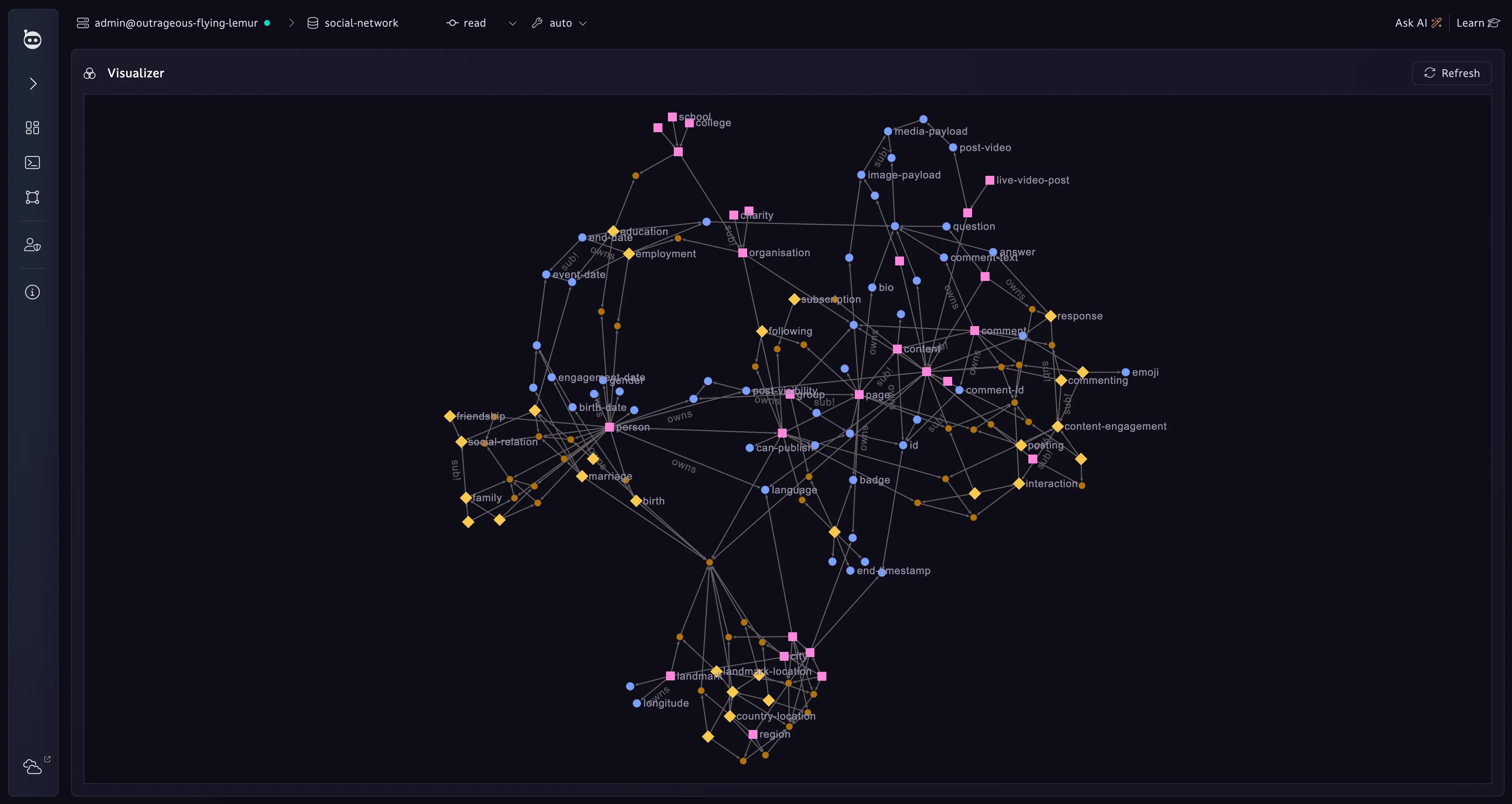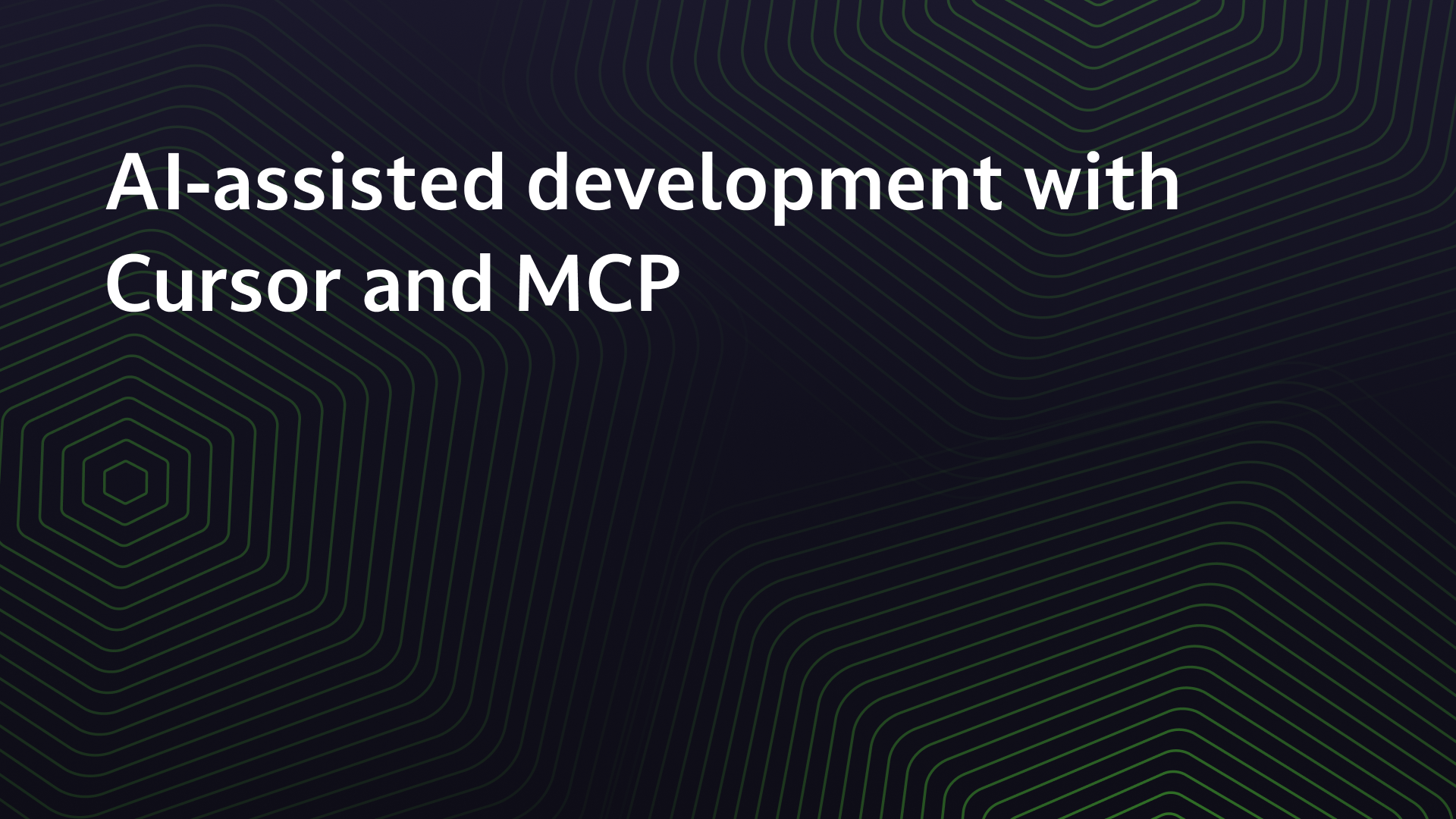Structured reasoning for AI agents
TypeDB gives AI agents the ability to understand, plan, and act safely through a semantic data layer, allowing them to truly understand and intuit from the data itself - whether that's via the MCP server, through the HTTP endpoint, or a language-specific driver library.
- 1
- 2
- 3
- 4
- 5
- 6
- 7
- 8
- 9
- 10
- 11
- 12
- 13
- 14
- 15
- 16
- 17
- 18
- 19
- 20
match
$user isa full-time-employee;
fetch {
"employee": { $user.* }
};
[{
"employee": {
"type": { "root": "entity", "label": "full-time-employee" },
"attribute": [
{ "value": "Chloé Dupond", "value_type": "string", "type": { "root": "attribute", "label": "full-name" } },
{ "value": "chloe@typedb.com", "value_type": "string", "type": { "root": "attribute", "label": "email" } },
{ "value": 185, "value_type": "long", "type": { "root": "attribute", "label": "employee-id" } },
{ "value": 35, "value_type": "long", "type": { "root": "attribute", "label": "weekly-hours" } }
]
}
}]
Why TypeDB is built for agentic systems
Building intelligent agents requires a grounded understanding of data. Agents must recall facts, infer relationships, plan actions, and verify outcomes.
TypeDB is purpose-built for this kind of reasoning. It models entities, relationships, and functions natively, allowing agents to construct, query, and evolve a knowledge base that mirrors their environment.
TypeDB enables agents to understand the data they interact with, which gives them a level of capability unparalelled by any other database provider. We give them a world model that your agents can based their capabilities upon.
Structured memory
Store and retrieve information through a schema that enforces meaning and prevents drift.
Learn more
Functions that scale
TypeDB functions can abstract away layers of logic, hence deriving new insights automatically, detecting hidden relationships that would take manual correlation to find.
Learn more
Explainability
Constraints and roles ensure agents act within safe, interpretable boundaries.
Learn more
Related articles
Structured, semantic memory
TypeDB stores information as entities, relationships, and roles, all governed by a formal schema. Why that matters for agents:
- Agents need to remember and reason over state, not just text.
- Vector databases retrieve similarity; TypeDB retrieves meaning (“Which tool belongs to which agent?”, “What’s dependent on this task?”).
- Semantic structure lets agents persist long-term memory without losing coherence.
Impact: Agents gain persistent, interpretable memory that survives context resets and scales beyond a prompt window.

Safety and consistency by schema
The schema defines what’s true and what’s allowed. TypeDB enforces roles, constraints, and inheritance at the database level.
Why it matters for agents:
- Prevents invalid or contradictory world states (e.g., circular dependencies, impossible goals).
- Keeps multi-agent environments coherent even as many actors update shared knowledge.
- Enables deterministic rollback and debugging of reasoning steps.
Impact: Agents reason safely and predictably, even in dynamic, concurrent systems.
- 1
- 2
- 3
- 4
- 5
- 6
- 7
- 8
- 9
- 10
- 11
- 12
- 13
- 14
- 15
- 16
- 17
define
attribute weekly-hours value integer;
entity full-time-employee sub employee;
entity part-time-employee sub employee, owns weekly-hours;
insert
$annette isa full-time-employee,
has full-name "Annette Durand",
has email "annette@typedb.com",
has employee-id 184,
has weekly-hours 35;
# [THW03] Invalid Write: Attribute of type 'weekly-hours' is
# not defined to be owned by type 'full-time-employee'.



